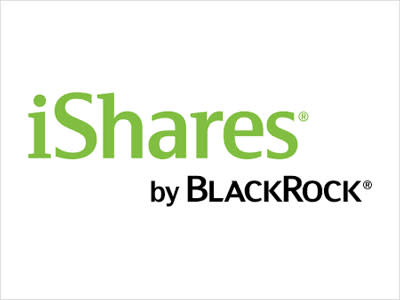BlackRock has been managing index portfolios since 1971
This fund provides low-cost exposure to hundreds of companies across Asia and the Pacific
It’s closely tracked the FTSE World Asia-Pacific ex-Japan Index since launch
This fund features on our Wealth Shortlist of funds chosen by our analysts for their long-term performance potential
How it fits in a portfolio
The iShares Pacific ex Japan Equity Index fund invests in the Asia-Pacific region, home to some of the most dynamic economies in the world. This includes emerging markets which have the potential to grow strongly over the long term, though they’re higher risk. This fund invests in company shares of all sizes, across a variety of industries and countries including Australia, Taiwan, South Korea and Hong Kong.
An index tracker fund is one of the simplest ways to invest and can be a low-cost starting point for a portfolio aiming to deliver long-term growth. We think this fund could be used to diversify a global portfolio or could be a good addition to a portfolio of tracker funds.
Manager
Dharma Laloobhai, Managing Director, is EMEA Head of Core Index Equity Portfolio Management within BlackRock's ETF and Index Investments (EII) Index Equity team. She’s responsible for fund managers based in London and Munich who manage developed and emerging market iShares equity index funds and ETFs.
Every equity index fund at BlackRock has a primary, secondary and tertiary manager, who each have the ability to run the fund, along with the wider team. The wider team is well-resourced and experienced in index investing.
BlackRock’s global approach allows them to work closely with their teams across the world, aiding more efficient management of their funds. We have positive conviction in Blackrock’s ability to provide simple and effective tracking options for investors.
Process
This fund aims to track its benchmark, the FTSE World Asia-Pacific ex-Japan Index, by investing in every company in the index and in the same proportion. This is known as full replication and helps to closely match the performance of the index.
The fund is currently made up of around 630 companies with nearly half the fund invested in the technology and financial sectors. Australia, Taiwan and South Korea make up a large part of the fund, accounting for 30.7%, 28.0% and 20.9% respectively, as of the end of February.
Keeping costs low is a key part of the team’s strategy to track the index closely. The portfolio managers communicate with local teams across the Asia Pacific region to ensure trades are placed at the best price, keeping costs low.
The fund can lend some of its investments to others in exchange for a fee in a process known as stock lending. This also helps to keep costs low. Since BlackRock’s lending program started in 1981, only three borrowers with active loans have defaulted. In each case, BlackRock was able to repurchase every security out on loan with collateral on hand and without any losses to their clients. Even so, stock lending is a higher risk approach.
The fund has tracking error targets, which measure how closely it's tracking its benchmark. These are monitored by BlackRock on a daily and monthly basis to ensure the fund is being run efficiently.
Culture
BlackRock is currently the largest asset manager in the world. The company was founded in 1988 by eight partners including current CEO Larry Fink and is known for both active and passive strategies across the world. Employees at BlackRock are encouraged to hold shares so that they are engaged with helping the company perform well and grow. The iShares brand represents BlackRock's family of index tracking and exchange-traded funds.
As the world's largest asset manager, and with lots of resource and knowledge under its belt, BlackRock benefits from unique access to the marketplace, which can help reduce trading costs. BlackRock is also a pioneer in the passive investment space and has a track record of innovation in this part of the investment market.
The team running this fund also works closely with various equity and risk departments across the business. We believe this adds good support and challenge on how to run the fund effectively.
ESG Integration
BlackRock was an early signatory to the Principles for Responsible Investment (PRI) and has offered ESG-focused funds for several years, including through its iShares range of passive products. However, it only made a company-wide commitment to ESG in January 2020. Following that announcement, the company promised to expand its range of ESG-focused ETFs, screen some thermal coal companies from its actively managed funds and require all fund managers to consider ESG risks.
BlackRock’s Investment Stewardship Team aims to vote at 100% of meetings where it has the authority to do so. The Investment Stewardship team engages with companies, in conjunction with fund managers, and the results of proxy votes can be found on the BlackRock website’s ‘proxy voting search’ function. The firm also outlines its work on voting and engagement in annual and quarterly Stewardship reports.
The firm has courted controversy in recent years for failing to put its significant weight behind shareholder resolutions aimed at tackling climate change. It responded by committing to be more transparent on its voting activity and providing rationales for key votes. In 2024, Blackrock announced that its US arm would step back from the Climate Action 100+ collective engagement initiative, citing legal considerations, although it suggested its international arm would remain a member.
As the iShares Pacific ex Japan Equity Index fund isn’t an ESG-specific fund, there are no company exclusions like weapons or tobacco, however an ESG version of this fund is available.
Cost
The fund has an ongoing annual fund charge of 0.11%. We believe this is excellent value when compared with other passive funds in this sector. This is one of the lowest cost funds on the HL platform for passively tracking the Pacific ex Japan market.
Our platform charge of up to 0.45% per annum also applies, except in the HL Junior ISA, where no platform fee applies.
Performance
Since launch, the iShares Pacific ex Japan Equity Index fund has tracked the FTSE World Asia-Pacific ex-Japan index well. As is typical of index tracker funds, it’s fallen behind the benchmark over the long term because of the costs involved. However, this difference has been reduced due to strategies used by the BlackRock team.
Over the last 12 months, the fund has tracked the index closely and returned 8.89%*. The technology, financial and telecommunication sectors positively contributed to performance over the year, whereas real estate and basic materials detracted from performance.
Taiwan’s stock market has been one of the best performing in the Asia Pacific region and recently reached an all-time high. Taiwan Semiconductor Manufacturing has led the way in Taiwan due to its expansion into other technology companies and the development of Artificial Intelligence (AI). It’s the fund’s largest holding, making up nearly 12% of the fund’s assets.
On the other hand, slowing growth in China on top of a housing and debt crisis has had a negative impact on Hong Kong and Thailand’s stock markets. Their reliance on the strength of China’s economy has dragged on the performance of the fund over the last year.
Given BlackRock's size, experience and expertise running index tracker funds, we expect the fund to continue to track the FTSE World Asia-Pacific ex-Japan index closely in the future, though there are no guarantees.
A glance at the five-year performance table below shows that the fund has seen both positive and negative returns. This reflects the performance of the underlying benchmark, which it follows closely. Remember, past performance isn’t a guide to future returns.
Annual percentage growth
Mar 19 – Mar 20 | Mar 20 – Mar 21 | Mar 21 – Mar 22 | Mar 22 – Mar 23 | Mar 23 – Mar 24 | |
|---|---|---|---|---|---|
iShares Pacific ex Japan Equity Index | -13.81% | 53.78% | 5.05% | -4.51% | 8.89% |


